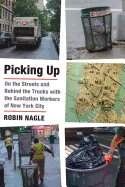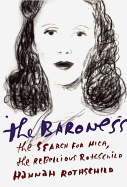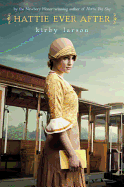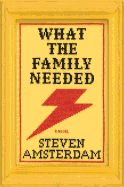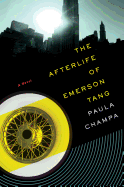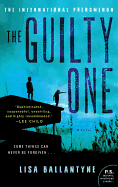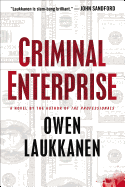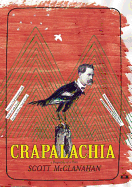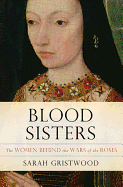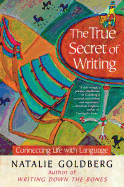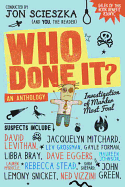Natalie Goldberg's Writing Down the Bones (1986) started the obsession with books on writing.
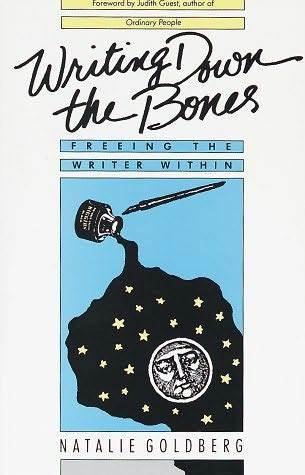 With Bones, Goldberg gave amateur writers--in the true sense of the word, those writing for the love of it--permission to use notebooks and journals to doodle and draw, to dream pies in the sky, to crash and, quite literally, to burn. She encouraged us to use journals to exercise, practice, experiment, hone.
With Bones, Goldberg gave amateur writers--in the true sense of the word, those writing for the love of it--permission to use notebooks and journals to doodle and draw, to dream pies in the sky, to crash and, quite literally, to burn. She encouraged us to use journals to exercise, practice, experiment, hone.
In Bird by Bird, Anne Lamott told us not to leave the house without an index card and a pen in our back pockets--even to walk the dog. She shared E.L. Doctorow's observation that "writing a novel is like driving a car at night. You can see only as far as your headlights, but you can make the whole trip that way." And, in a personal favorite, If You Want to Write, Brenda Ueland advises, "Work freely and rollickingly as though [you] were talking to a friend who loves you."
Natalie Goldberg says, in Writing Down the Bones, "One poem or story doesn't matter one way or the other. It's the process of writing and life that matters." The writers who resonate write about a life that matters. Each of her books builds on this idea. Wild Mind describes living the writer's life. Both Wild Mind and Bones begin with her seven rules for writing, from "1. Keep your hand moving" to "7. Go for the jugular." They can be summed up this way: Do not judge.
Long Quiet Highway describes Goldberg's path to enlightenment with her notebook as her companion. It's about getting the details down honestly and participating fully in the world around her. It's also about her teachers--all of them. So it's logical that her next book would be The True Secret of Writing, her blueprint for a meditative writing retreat between covers. --Jennifer M. Brown, children's editor, Shelf Awareness
What the Family Needed
by Steven Amsterdam
A seemingly innocent question in the first chapter sets the plot of Steven Amsterdam's What the Family Needed in motion. Young Alek asks his teenaged cousin Giordana, "Okay, tell me which you want: to be able to fly or be invisible?" Giordana answers "Invisible," and within minutes, she is.
Each subsequent chapter, though linked by characters and setting, provides a distinct view of another family member: Natalie (Alek's mother), Ben (Giordana's brother), Ruth (the mother of Giordana and Ben), Sasha (Alek's brother), Peter (Alek and Sasha's father) and, finally, Alek himself. Over the course of three decades, family members discover that they, too, possess a supernatural gift, just when they need help.
Amsterdam (Things We Didn't See Coming) has chosen a particularly challenging theme for his novel, but manages to succeed in telling each family member's story with subtle honesty and--most importantly--absolute believability. Giordana's welcome invisibility comes just as her parents end their unhappy marriage; Ruth, a lonely and overworked nurse, can suddenly hear the thoughts of her dying patients. Peter, reeling after the death of his wife, finds he can make some of his unspoken desires come true.
As the family members age, move away or reconnect, their relationships with one another are shaped by time as well as by their supernatural gifts (and how they choose to use them). What The Family Needed is an extraordinary novel, and readers will be thinking about it long after they finish. --Roni K. Devlin, owner, Literary Life Bookstore
Discover: A thought-provoking novel about a family's discovery of individual supernatural powers that allow each member to navigate relationships and deal with challenging situations.
The Afterlife of Emerson Tang
by Paula Champa
Can the engine of a car stand in as a metaphor for the immortality of the soul? That's the question at the heart of Paula Champa's debut novel, The Afterlife of Emerson Tang.
As a child, a near-death experience left Beth Corvid feeling out of synch with the rest of humanity. An archivist with a passion for cataloguing and collecting, Beth becomes the employee of wealthy Emerson Tang. But Beth's job becomes complicated when she finds out Emerson is dying.
Emerson entrusts Beth with a mission: to find the original engine of his precious Beacon racing car. In this quest, they have a rival: European artist Helene Moreau is also seeking to reunite the Beacon with its engine for mysterious reasons of her own.
Beth's search for the engine takes her from Emerson's Manhattan apartment to places as wide-ranging as Germany and California, and through research topics that include fascism during World War II and modern art movements. Emerson is a man about to lose his life far too early, while Helene is attempting to regain the vitality of her lost youth. In seeking immortality for Emerson, Beth must grapple with what it means to live a fully realized existence.
The Afterlife of Emerson Tang is cleverly written and constructed like a mind-bending puzzle. Champa's self-assured prose and character development--particularly the tormented character of Emerson--effectively move the story forward. The central conceit of the novel--the Beacon's body and engine as a metaphor for the human body and soul--is thought-provoking and integral to various plot threads. --Ilana Teitelbaum, book reviewer at the Huffington Post
Discover: Beth Corvid's quest to restore a classic racing car before her employer's death is both a cleverly written, complex mystery and a meditation on mortality.
Mystery & Thriller
The Guilty One
by Lisa Ballantyne
Debut novelist Lisa Ballantyne writes like a practiced, polished veteran of the craft in The Guilty One. Daniel Hunter, a troubled youth who found his saving grace in an eccentric widow named Minnie, has grown up to become a successful solicitor, taking on the defense of Sebastian Croll, the 11-year-old "Angel Killer" accused of brutally murdering his eight-year-old neighbor. Daniel, seeing his younger self in Sebastian, is determined to keep him from a life of imprisonment; guilty or innocent, Daniel believes no child Seb's age can benefit from the London penal system. It will only destroy mind, body and spirit.
Meanwhile, Daniel receives news that Minnie, his adoptive mother, has died, and he reacts with mixed and confusing feelings. By alternating between the progression of Seb's trial and Daniel's youth, Ballantyne slowly unveils the mystery of Daniel and Minnie's estrangement over the last 15 years.
A story of redemption and regret, The Guilty One shows how prisons aren't always made of steel bars--and freedom isn't always what we perceive it to be. Readers will be as captivated by Ballantyne's unparalleled characters as they are by the intense, psychological plot. This haunting, heart wrenching psychological thriller is a highly emotional, addictive reading experience that will appeal to readers of all genres. With a debut this explosive, it's hard to imagine what Ballantyne's encore will bring. --Jen Forbus of Jen's Book Thoughts
Discover: In Ballantyne's debut thriller, the murder trial of a young boy leads a London solicitor to come to terms with his own sordid, troubled past.
Criminal Enterprise
by Owen Laukkanen
Owen Laukkanen reunites the team of FBI agent Carla Windermere and Kirk Stevens of Minnesota's Bureau of Criminal Apprehension (from 2012's The Professionals) in Criminal Enterprise. Windermere and her partner are tracking a gang of bank robbers whose crimes keep getting bigger; while her colleagues are investigating typical criminals, she suspects the main perpetrator is an accountant. Meanwhile, Stevens has taken a desk job investigating cold cases so that he can spend more time with his family. He's busy coaching his teenage daughter's basketball team, until he bumps into Windermere and realizes he has a strange connection to the robberies she's investigating.
Criminal Enterprise is a fast-paced thriller that keeps the reader guessing as Stevens and Windermere narrow in on the robbers' identities. Adding to the tension are alternating chapters told from the point of view of the main bank robber--detailing his transformation from an ordinary businessman into something much more deadly.
Laukkanen has done an excellent job creating an entirely plausible criminal--a man who would do anything to protect his family. The heightening tension of the escalating crimes keeps the pages turning, making the reader eager to see just how far things may go. Set in a vividly cold Minnesota winter, Criminal Enterprise offers a perfect escape into a freezing, suspenseful world. --Jessica Howard, blogger at Quirky Bookworm
Discover: Laukkanen's second Windermere and Stevens novel is a fast-paced, high-stakes heist thriller.
Nonfiction
Picking Up: On the Streets and Behind the Trucks with the Sanitation Workers of New York City
by Robin Nagle
The U.S. generates more waste than any other country in the world, and New York City alone creates more than 12,000 tons of solid waste and recyclables every day, all of which is then spirited away as though by magic. Of course, the only magic at work is an army of nearly 10,000 sanitation workers. In Picking Up, Robin Nagle takes readers on an unusual and enlightening journey into the heart of the City of New York's Department of Sanitation.
With a military-like discipline, the DSNY relies on an intricate network of camaraderie and bureaucracy rarely glimpsed by outsiders. Nagle has spent 10 years observing the "garbage faeries" who devote hours of back-breaking labor to keeping New York's streets clean. She even took on the job herself, learning terms such as "garbage juice" and the less self-explanatory "mungo" the hard way. In her chronicle of life on the truck, Nagle lays out not only the cringe-inspiring details of the city's most dangerous job, but how the conditions have changed over the centuries, including streets full of dross and roaming livestock in the mid-1600s and a state of filth that threatened to create a public health crisis in the 1890s.
This frank and respectful look at a coterie of society's most unsung heroes will forever change the way you think about your neighborhood sanitation workers and compel you to consider where we would be without them. --Jaclyn Fulwood, youth services manager at Latah County Library District and blogger at Infinite Reads
Discover: An anthropologist's perspective on how New York City cleans up after itself, based on a decade's study of the sanitation department.
Biography & Memoir
The Baroness: The Search for Nica, the Rebellious Rothschild
by Hannah Rothschild
Sometime in the late 1940s, the baroness Pannonica de Koenigswarter--a scion of the immensely wealthy Rothschild family--heard a recording of Thelonious Monk's " 'Round Midnight" while visiting New York. "I'd never heard anything remotely like it," she said many years later. "I must have played it twenty times in a row. Missed my plane. In fact I never went home." According to legend, she was so transformed by that "mournful, lazy, sexy-sounding ballad" that she dedicated the rest of her life to jazz and jazz musicians.
She went by Nica, but she was also known as "the Jazz Baroness." For the next 40 years, she roared up to midtown clubs in her Rolls-Royce nearly every night, in pearls and furs, smoking and drinking and tapping to the music well into her 70s. She was not just a jazz fan, but a great patron and passionate devotee who became Thelonious Monk's steadfast friend and champion, once nearly sacrificing her own freedom to keep him out of jail.
The Baroness is a questing tribute to Nica by her great-niece, writer and documentarian Hannah Rothschild (who also did the documentary The Jazz Baroness). This truly fascinating investigation reveals Nica and Monk's enduring bond and the unlikely parallels between an unfathomably wealthy, Jewish, British heiress and a troubled but brilliant black man in mid-century America.
Drawing on a wealth of family archives and from interviews with the likes of Quincy Jones and Sonny Rollins, and aching with deeply personal connection, The Baroness is part biography, part study of a complex and tremendously influential family, and part crash course in the riotous history of jazz. --Hannah Calkins, blogger at Unpunished Vice
Discover: Hannah Rothschild's tribute to her great-aunt Nica, a wildly unconventional aristocrat who became Thelonious Monk's closest friend and patron.
Crapalachia: A Biography of a Place
by Scott McClanahan
Scott McClanahan centers Crapalachia on two characters of his West Virginia youth who rule over much of the narrative--his Grandma Ruby, an ornery, fantastical mother of 13 (or so) children who also photographed dead people, and his uncle Nathan, who had cerebral palsy and enjoyed listening to the radio preacher and having six-packs of beer poured down his feeding tube. We also meet his schoolboy friends, like Little Bill, an eventual roommate with obsessive-compulsive disorder and a destructive crush on a girl down the street.
Crapalachia is an unusual story told in an unusual fashion, peppered with second-person references, advice to the reader on how to live, how to remember and forget. The attentive reader will also appreciate McClanahan's "Appendix and Notes" for its revelation of where he's twisted the truth (as he remembers it) to suit the story he wanted to tell. Like many memoirists, McClanahan is concerned with the nature of memory, its credibility and value. He sometimes gets mired in the unpleasant, cringeworthy details of life, then pans out for grand, loving, hopeful statements. This is a gritty look at life--in Appalachia, yes, but also in a universal sense. Historical detail turns what looked to be a memoir of childhood into the subtitle's promised "biography of a place." In the end, despite various tragedies, this poetic, rambling series of remembrances is surprisingly optimistic. --Julia Jenkins, librarian and blogger at pagesofjulia
Discover: The author of Stories and its followups, Stories II and Stories V!, shares a memoir of Appalachian boyhood filled with the requisite hardships but ultimately redemptive.
History
Blood Sisters: The Women Behind the Wars of the Roses
by Gristwood Sara and Sarah Gristwood
In Blood Sisters, historian Sarah Gristwood (Arbella: England's Lost Queen) tells the familiar story of the Wars of the Roses, the so-called "Cousins' War" between the houses of Lancaster and York over the throne of England, from a new perspective. Most histories of the period, Gristwood says, echo the "patriarchial assumptions" of the time by focusing on its male protagonists; she puts the kings and kingmakers in the back seat, bringing forward their mothers, wives, sisters and daughters.
Some of Gristwood's subjects, like heiress Anne Neville, were passed from one royal family to another like pieces of property. Others were actively involved in the politics of the time, using husbands and sons as their path to power. Whether pawns or players, all were caught up in the web of changing alliances, family loyalties and political machinations that defined the war. Gristwood pieces together their stories from household accounts, occasional letters and appearances in the accounts of others.
At its heart, Blood Sisters is about relationships. Gristwood describes the events surrounding the Wars of the Roses and the resultant rise of the Tudor dynasty as a family saga whose protagonists were tied together in many ways. By focusing on the lives of the Plantagenet women, she illustrates the complexities of those ties--and in the process, creates a larger picture of the Wars of the Roses. --Pamela Toler, blogging at History in the Margins
Discover: The recent discovery of Richard III's bones adds a timely dimension to this look at the lives of seven women who helped shape the Wars of the Roses.
Social Science
Drunk Tank Pink: And Other Unexpected Forces that Shape How We Think, Feel, and Behave
by Adam Alter
The title of Adam Alter's Drunk Tank Pink alludes to a 1979 study that revealed staring at the color pink dramatically decreased strength levels in men. This discovery led to a rash of pink prisons, doctors' offices and housing projects--even visiting teams' locker rooms. "This book," Alter states, "is an attempt to uncover the role of Drunk Tank Pink and dozens of other hidden forces as they shape how we think, feel, and behave."
Alter reframes familiar studies with more recent findings. Some observations may be familiar to readers of books like Freakonomics, such as the expectations we place on others based on their first names and the sharp decreases in New York City crime following the prompt removal of graffiti. Other findings will seem commonsensical: who hasn't experienced road rage sitting in bumper-to-bumper traffic on the hottest day of the year or felt the debilitating effects of decreased sunlight in the bleakness of winter? There are surprises, however: Who knew observing daylight savings time, or living on the ground floor of an urban apartment complex, might make children dumber?
"Your mind is the collective end point of a billion tiny butterfly effects," Alter concludes. "Your thoughts, feelings, and actions are the products of chaotic chain reactions, fueled in no small part by... our names, the labels and symbols that surround us, who surrounds us and what they look and act like, the culture in which we were raised, colors, locations, and weather." --Kristen Galles, blogger at Book Club Classics
Discover: Fans of Outliers, Freakonomics and The Righteous Mind will welcome this examination of why we do what we do and how little control we have over our perceptions.
Reference & Writing
The True Secret of Writing: Connecting Life with Language
by Natalie Goldberg
Aspiring writers have long turned to Natalie Goldberg's Zen-fueled guidebooks--most notably Writing Down the Bones--to help them find their way to the page, and some of the phrases she's coined have entered the wider vocabulary of creative writing: monkey mind, writing practice, wild mind.
By connecting her own life to language in The True Secret of Writing, Goldberg creates a work that is half memoir and half writing manifesto. She extends the concept of writing practice beyond the 10-minute timed writings that lie at the heart of her work to "all the time in which you also live outside the notebook." Much of the book focuses on the writing retreats she has taught for 35 years; she describes not just the nuts and bolts of the events themselves, but the way in which writing practice enriches and is enriched by the traditional meditation practices of sitting and slow-walking. Along the way, she offers more examples of the combination of innovative writing exercises and hard-nosed inspiration for which she is known. The final, most personal section, "Encounters and Teachers," pays tribute to the way writing and life bleed into each other.
At the very end, though, she introduces yet another phrase that seems destined to become a koan for a generation of writers: "Shut up and write." She is the first to admit this advice is both absolutely simple and unbelievably hard. --Pamela Toler, blogging at History in the Margins
Discover: New lessons from a lifetime of writing practice by the author of Writing Down the Bones.
Children's & Young Adult
Hattie Ever After
by Kirby Larson
Kirby Larson gives readers an engaging and absorbing follow-up to her Newbery Honor book, Hattie Big Sky, as the heroine makes her way to the West Coast, in a story that stands on its own.
In Hattie Big Sky, orphan Hattie Brooks tried to make a go of the homestead in Montana that she'd inherited from her uncle. Although she worked hard, Hattie wasn't able to hang on to the property. In this new adventure, Hattie signs on as wardrobe mistress with the Venturing Varietals, an acting troupe that's traveling to San Francisco. Once there, she hopes to begin a career as a newspaper reporter. She knows it won't be easy, but Hattie is nothing if not determined. She takes a cleaning job at the San Francisco Chronicle just to get her foot in the door. Soon, she works her way up to researcher, and even wins a few writing assignments. But by following her dream, it seems that Hattie must leave behind all thoughts of becoming Mrs. Charlie Hawley.
Hattie Ever After reflects Larson's meticulous research, yet the historical details never overwhelm the story or the characters. Instead, all the elements combine to form a multilayered and colorful story. Readers will be thrilled to follow the trials and triumphs of Miss Hattie Inez Brooks in 1919 San Francisco. --Lynn Becker, host of Book Talk, the monthly online discussion of children's books for the Society of Children's Book Writers & Illustrators
Discover: The engaging follow-up to the Newbery Honor book Hattie Big Sky, which follows the hardworking heroine to 1919 San Francisco.
Who Done It?
by Jon Scieszka, editor
Herman Mildew may have been the most difficult infamous editor alive. The problem is, Mildew is dead. Now 83 young adult authors must provide their brief first-person alibis in the new anthology Who Done It? edited by Jon Scieszka (the Spaceheadz series). The stellar list of suspects (aka contributors) includes John Green, Maureen Johnson, Libba Bray, David Levithan, Rebecca Stead, Mo Willems and, of course, Lemony Snicket, as well as many others. All of the authors had motives. Some had the means (everything from chains to rat poison to frozen legs of lamb). A few, like Dave Eggers and Aimee Freedman, admit to thwarted plots. With a lively blend of self-incrimination and finger-pointing, Who Done It? will keep readers guessing to the end.
While such a premise, and lengthy list of contributors, runs the risk of redundancy, the unusual voices, humor and varied writing styles will keep readers engaged and entertained. Proceeds from the sales of Who Done It? benefit 826NYC. --Kyla Paterno, trade book buyer and blogger, Garfield Book Company at PLU
Discover: A pantheon of famous authors must provide alibis when their editor is murdered.


